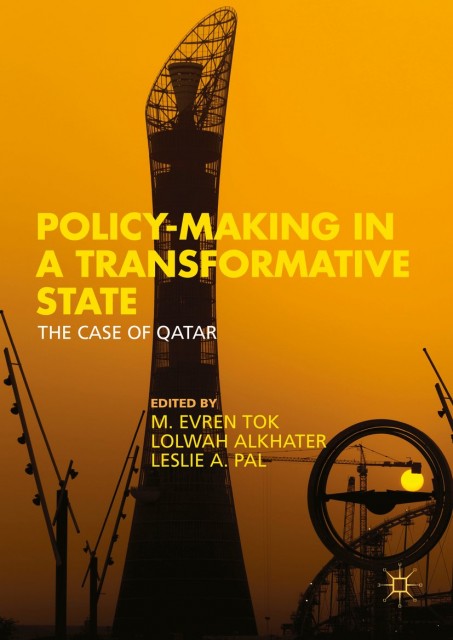Edited collections are challenging to write about and review, with the chapters covering diverse areas / topics and each offering unique data and perspectives. One unique edited collection on Qatar is Policy-Making in a Transformative State: The Case of Qatar, edited by M. E. Tok, L. R. M. Alkhater and L. Pal (2016). The book is over 400 pages and has 14 chapters, beyond the scope of a quick summary. However, there are some valuable contributions that I will point readers toward, which will be of interest from the perspective of understanding policy making as well as unique contributions to understand the Qatari context.
One of the gems in this book is Khalid Rashid Alkhater's Macroeconomic Stabilization Policies and Sustainable Growth in Qatar (Ch 12). While the title is generic, this is an excellent contribution on financial and monetary policy, which I will continue to use in my teaching. The chapter by Lolwah Alkhater on educational reform (Ch 4) provides much more detail than Vora's book. For anyone interested in the education system (and its transformations), this is a critical reflection of decisions made and an important resource. This is followed by a chapter on higher education (Ch 5, by Ahmed Baghdady), which is more descriptive.
In the available English literature, there are few places where one can find nuance on constitutional and legal details of Qatar (while there are political books, like Kamara, these remain quite broad on these points). For this, Hassan Al-Sayed's chapter on Qatar's Constitutional and Legal System (Ch 2) is worth reading. Now the dean of CHSS at HBKU, Amal Mohammed Al-Malki, has a chapter on identity (Ch 9) and Hend Al Muftah has a chapter on labour (migration, Qatarization; Ch 10) with explicit policy recommendations.
Many of the books available on Qatar are written by outsider voices, sometimes following short stays in the country and often by scholars who do not have access to Arabic sources or conversations. This edited volume provides a broader range of content, not only with insider perspectives but also in many instances contributing original data and interviews. Although much has changed since 2016, this is still a useful book for those interested in understanding Qatar, and particularly useful understanding policy challenges and policy making. One downside to the book is the cost - this is an expensive academic book published by Palgrave, which reduces the accessibility of this collection for those without institutional subscriptions.

